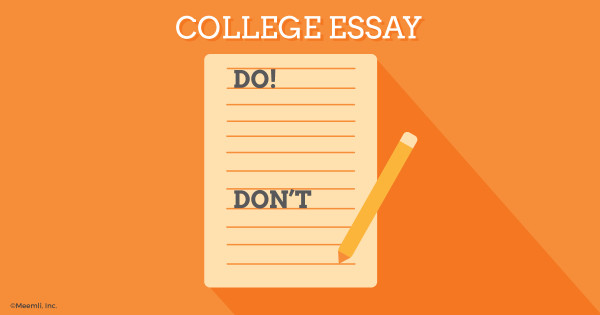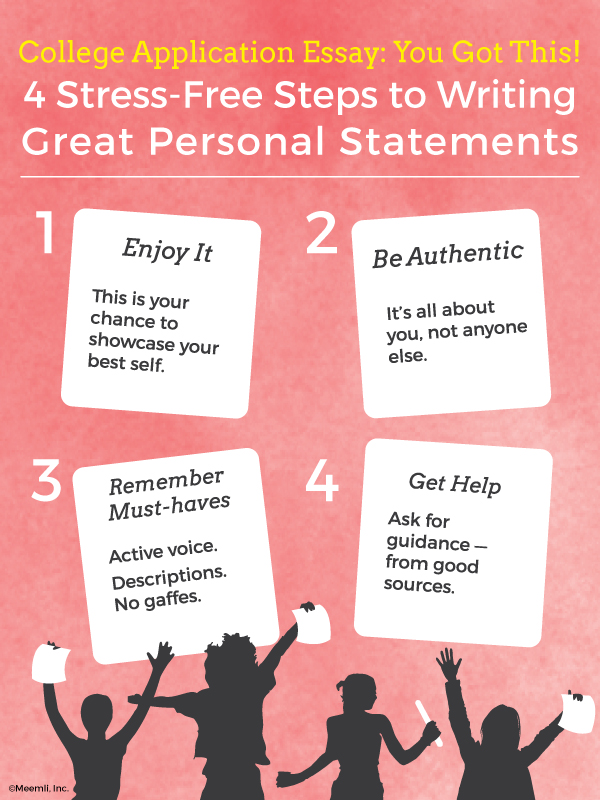Month: November 2015
Time to Give Thanks!

Yes, we agree. Being grateful should be a daily habit, not just an annual, and thereby unfamiliar, activity. But THANKSGIVING DAY! Whatever the reason or history behind it, this is an awesome American holiday that gives us a chance to reflect and give thanks. And it doesn’t hurt that giving thanks has been proven to actually be good for you!
We at Meemli take this opportunity to thank everyone who has helped (and is helping) us in our mission to bring a great learning experience to students everywhere.
The Students
We loved having the opportunity to interact with so many different students and hear about how we helped them. “Helped me make my college essay stand out” – thanks Mayrali, great to hear that! And we also deeply appreciated all the suggestions we got. “Add more emojis” – we’re working on that Gabriel!
Seriously, we’re here to make a difference to the students and not so surprisingly, they make a difference to us! We’re deeply grateful to all students who have taken a chance on something new and different like Meemli.
The Parents
Of course, there are very supportive parents behind every student who’s trying out Meemli! We are thankful that these parents see the benefit of a rich, interactive online experience for their child and are not only willing, but often encourage, their children to participate in Meemli’s offerings. We love it when parents get engaged in their kids’ education in a positive way and do our little bit for them by sharing inspiring and informational posts for parents as often as we can.
The Teachers
Ah, the teachers! Where do we start? We’re grateful to all the teachers in the schools, especially the underserved, under-resourced ones, who work so hard to make a difference. We’re honored when we can join them and reduce their burden, even just a little bit. And the many other teachers who recommend Meemli to their students who need a little extra assistance and believe that Meemli can provide the quality and care they would like – thank you for your support!
We’re also deeply thankful to all the teachers who bring their skills, experience and knowledge to help Meemli develop top-notch curricula, and the ones who deliver our interactive online classes with such ease and responsiveness. We appreciate having them participate in this creative (and challenging) process and hope they enjoy it as much as we do!
The Team
Finally, Meemli would be nowhere without the efforts of our “small team with a big heart”.
Our CEO, Usha Sekar, says. “Our team is driven by our mission. Every single person cares deeply about education and is extremely enthusiastic about our vision. This makes it so much easier to work together and get things done, even with tight resources, tight deadlines and the inevitable challenges. Corinne, Susan, Lloyd, Noël, Shelley, Alison, Tracy, Mashalle, Marcos – you’re all high on the list of what I’m grateful for this Thanksgiving!”.
Technology is great and we’re ever so thankful for it (can’t forget we wouldn’t be in business without it!). But for Meemli, technology is just a tool, albeit an über-important one. At the end of the day, it is all about the people and we’re thankful to all those who welcome our work, and to all those who help us do our work successfully.
Wish you all a very Happy Thanksgiving!
24 Nov, 2015
Experts’ Tips for College Essay Success

(Please share this with the college-bound teen in your life!)
The time has come: You’re applying to college. Are you freaking out yet? If you are, you’re not alone. Applying to college can be a nerve-wracking process for countless high school seniors, especially one particular activity…writing the essay.
“How do I squeeze everything there is to know about me into 500 words?”
“My life is so boring! I don’t know what to write about.”
“If I don’t write a good essay, I won’t get in anywhere!”
We asked our awesome College Essay workshop development team to share their top tips for college essay success and they jumped right in.
Check Your Dos and Don’ts!
One thing they all agree on is to pay attention to the “dos and don’ts” when writing your college essay. Grammar and spelling are important, as are these other writing tips:
- Write in your own voice
- Use an appropriate tone
- Avoid slang
- Use descriptive details
- Be concise
You’ve probably seen these in many ‘how to’ posts on the college essay and that’s because these are fundamental – so make sure you pay attention to them!
Just Start Writing
Noël Young believes that often students get caught up in a spiral of trying to figure out what to write before they write it. She suggests they just write.
Don’t be self-conscious or worry about grammar or how it might sound; just get it all down on paper and then go back and revise it. Sometimes the biggest block is trying to follow all the rules and make it perfect right away. Instead, she suggests, “write what you feel without concern for rules so that you are free to get all of your ideas out. As you write, you may even discover something about yourself.”
Shelley Aschliman heartily concurs.
I agree that “just starting” is a great start! A lot of times essays can start out very patchy — like you think of one single paragraph to write or one little story you could tell. Start there. Even if you don’t even know where you’ll end up. One idea can often lead to another and then you can collect all those little stories to tell something big about yourself. Look for patterns or themes. What could the pattern show about you? (Kind of like using a picstich on Instagram…)
It’s All About You!
Raja Ashraf asserts that it is counter-productive to think about what others are going to write and the rest of the team heartily agrees. Trying to match your ideas to what other students might be writing or what you think the admissions committee wants to hear, will only prevent your true self from shining through. When you try to write something that isn’t real, it shows. Primary rule of personal statements: Be Authentic!
And also, show that you are mature and reflective and can share the real you. Since few teens have a lot of experience writing about themselves, they often resort to just repeating their activities and accomplishments. Alternately, they just write about their feelings, airing their grievances using the essay as therapy!
So, remember to write about how your activities and experiences shaped you, not just what they were, and what you learned from facing your challenges, not just how difficult they were to overcome. And, adds Susan Tu, ” we don’t want you to lie and embellish your experiences, but we also don’t want you to be overly modest. Recognize and be proud of your accomplishments!”
You Have A Story!
When reviewing applications at Stanford, Raja was most impressed by the students who wrote about something ordinary in a most extraordinary way. Let’s face it, most students do not have extraordinary experiences by the time they are 17 years old. And they shouldn’t feel bad about it. Instead, they should learn to look deeper and find the gold that they can share.
Susan tells this helpful story from her high-school counseling days. Jessica worked incredibly hard at school, then took care of her little brother while her mother worked, and did her homework (and got great grades) while her family slept. She didn’t think it was anything special, it was just something she did all the time, so she told Susan “I have nothing to write about!”. With a little prodding, Susan was able to unearth the truth behind Jessica’s daily life and show her that she had “extraordinary” circumstances and accomplishments.
You don’t need to have overcome disease, poverty or handicaps, or built companies and written best-sellers to have something compelling to write about. Shelley adds this reminder “It’s all about HOW you write it. A lot of people might have a similar story, but it’s how you write about it, what you think about it, what it means to you that makes it unique…and worth reading.”
When you’ve written your draft, think about “How do I come across? What kind of person will be reader think I am?”.
Raja and Susan both recommend that you have someone who doesn’t know you well read your essay and give you a very brief summary of what they got from it. That should help you figure out if you’ve got your message across.
(Don’t have someone who can help review your essay? Check out Meemli’s College Essay Expert Review option to get fast, detailed feedback on your essay from our awesome team!)
We’d like to wrap up with one more insight from Noël:
The most memorable essays I have read have always told me a story. I forget that I am reading an academic essay and feel like you are sitting next to me, telling me your story.
We hope your story is a great one and we wish you all the best in your journey to college!
19 Nov, 2015
How Can Parents Help With Homework Challenges?

As their kids grow up, parents increasingly believe they’re out of their depth. You may not think that parents help with homework challenges in middle or high school because the subjects are ‘so advanced’. It’s not time to give up yet. Homework struggles are due to many causes and there are many ways you can help.
Motivation
To be fair, you can’t expect all children to be driven and self-motivated, especially in middle school. They may need some tangible incentives to keep them on track, while still learning why abstract goals like ‘doing well in school’ will help them later on.
Middle school children may respond to incentives like doing a fun activity when the homework is done, or a more-complex rewards system based on points, which is like a game kids can ‘play’ to win. If you want it to succeed, work out the strategy with your child, giving him a voice as well as responsibility.
There might also be other, deeper causes for lack of motivation, especially for high school students, and you might need to work a little harder to understand what is going on. It may be due to emotional/social issues, so tread carefully and figure out what’s happening. Your child’s teacher may have some helpful insights.
Poor motivation could also be related to feeling overwhelmed or bored. You can teach your child how to break down tasks into more manageable chunks so it is not so daunting. Boredom is trickier to solve. Sometimes you can liven up the homework by showing your child how to connect it to something interesting (math to basketball, or a movie for history report), but at other times the assignment is just plain boring. All you can do is share the many times you’ve had to do dull, boring things yourself and encourage her to take breaks from the tedium. It’s a teachable moment – life’s not always fun and interesting!

Time Management
Sometimes the problem is not the complexity of the homework, but in getting it done on time. Kids do have a lot to do between schoolwork and extracurricular activities, and time management is often a learned skill. A practical solution is to encourage your child to create a schedule that includes when and where to do homework. You should work collaboratively with your child to make them feel in control of their own time, and support them in keeping to their schedule.
High schoolers have more independence, responsibilities, and of course, more homework! They need to ask for, and use on-campus resources like peer tutoring and the counseling center and be proactive in communicating with their teachers. For example, my son got an F in his Spanish flashcard assignment because he forgot to turn it in on time and was too diffident to ask if he can get partial credit for late submission.
Academic Challenges
This brings us to our final point about homework troubles – sometimes children are simply having difficulty with the subject matter and need help, and as a first step, you have to understand the problem. Is your child struggling in one class in particular, or a specific topic in that class, or all classes? Is your child struggling with being tested on the material or writing about the material though he knows it? Are your child’s friends also struggling? Talk to the teachers and hear their take on it. They spend a lot of time with your children in the classroom and have a unique insight into their academic abilities and performances. Figure out how other students are faring too.
Next, if you have the skills to help with homework, then help! If your child is having trouble with math and you’re strong in math, then set aside some unhurried time to help guide him. Be patient, figure out your child’s learning style and brush up your skills. Of course, do this only if you are confident in your expertise in the subject and your ability to teach it in a way that fits in with your school’s and your child’s needs.
At the high school level, your child’s school may also offer resources such as school counselors or peer tutoring. Don’t be shy about supporting your child in accessing all of the available resources. Your child may also do better with a study group so encourage him to join one if possible.
If your child needs more help, you should look into supplementing her learning outside of school. After-school learning centers, in-home or online tutors are all options to consider based on the needs of your child. For subject-specific help consider Meemli’s excellent online learning offerings that focus on building understanding as well as skills for success, while providing convenience and flexibility.
Homework offers more benefits than just good grades. Homework teaches children how to plan tasks, manage their time, motivate themselves, and take responsibility, all the skills they’d need in their adult lives. If you see your children struggling, first let them try and sort it out on their own. But don’t stand back for too long; it’s important to be proactive and help your kid before it seriously impacts his school experience. Just one caveat: don’t do your children’s homework for them!
How do you help your kids with their homework?
(This post is by contributor Anna Colibri.)
12 Nov, 2015
Tips To Take the Stress Out of Your College Essay!

(Please share this with the college-bound teen in your life!)
If you’re a high school senior, right about now you’re freaking out about your college application essay. After all, everyone tells you it is SO IMPORTANT and will determine whether you get into the college you want – or NOT!! This is the stuff of nightmares and panic attacks.
But relax.. It’s really not that scary-impossible. Approximately 2.2 million students enroll in college every year! And that “personal statement”? It is only one of the ways colleges know how amazing you are – your test scores, grades and extra-curriculars matter too!
Meemli experts are happy to share a few simple steps that you can remember next time the anxiety strikes, then take a deep breath, and let it go – you’ve got this!
Need more reassurance and active help in writing your essay? There are many places where you can get help , and Meemli offers an outstanding option.. An experienced teacher will guide you through writing your essay, all the way to the final version, and you can take the course from the comfort of home – you can’t beat that for easy access!
Check out our workshop on Writing A Winning College Essay and see if it’s right for you.
Whichever approach you choose, remember to enjoy the process as you share about your awesome self to all those admissions officers across the country – we wish you all the best!
If you have tips to share on dealing with the college essay, share them with us – we’d love to include them in a future blog post!






